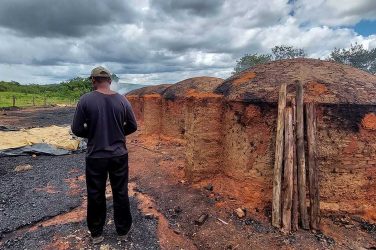Brazil is suggesting that the African nations start producing renewable fuel as a way to improve the area's economy, creating new jobs for a product expected to have big demand in the years to come.
Many regions in Africa have favorable soil and climate conditions for bio-fuels production, according to the president of Petrobras, José Sergio Gabrielli.
He was a member of the Brazilian delegation that accompanied president Luiz Inácio Lula da Silva in Davos, Switzerland, during the World Economic Forum, which ended this Sunday, January 28.
The suggestion for the African continent to become a producer of renewable fuel was made in Davos by president Lula, who offered Brazilian technology to help the Africans.
"We believe this might be a way out for these countries," said Gabrielli. "The key issue, though, is not technology, but rather the financial aspect," Lula claimed.
Lula suggested to the businessmen in attendance at the World Economic Forum that wealthy countries might finance projects for bio-fuel production.
"Bio-diesel generates employment, income and development, and the Brazilian program could be an example to be implemented in African and Central American countries, with financing from wealthy countries," Lula said.
Lula mentioned that instead of producing ethanol out of corn, for instance, the United States should finance bio-diesel projects in poor countries, which could also be cheaper.
Professor Mário Ferreira Presser, who coordinates the Economic Diplomacy Course at the University of Campinas (Unicamp), in the southeastern Brazilian state of São Paulo, said that bio-diesel projects "have many attractive aspects: they would benefit Africans, Europeans and Brazilians. These projects would address the issues of climate and poverty, and liberate the sugar and alcohol markets."
"The strategy of Brazilian businessmen consists of showing that they will not single-handedly become major ethanol producers, but rather that many other developing countries may benefit from this market opening," says Professor Presser.
"The World Bank has also shown enthusiasm regarding the issue. Since no one knows exactly how to deal with the African problem, turning the continent into a producer of a commodity for which there is a guaranteed demand would be a tremendous step forward, and a great achievement for Brazil," according to Mário Presser.
"This is a business that should attract the interest of leading investors, because the prospect of making profit is very high," said Gabrielli.





